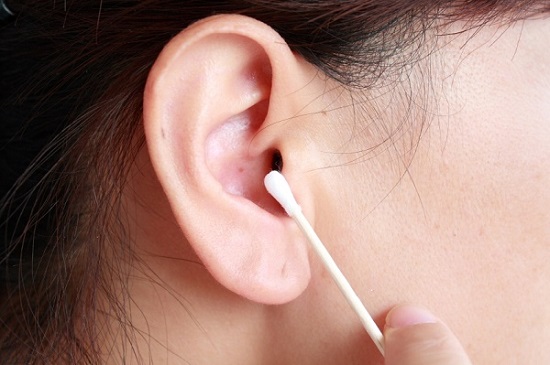4 Reasons to Stop Using Cotton Swabs to Clean Your Ears

You’ve most likely never noticed, but on the back of any package of cotton swabs there’s a warning that is some variation of this:
“Caution: Do not enter the ear canal. Penetrating the ear canal could lead to injury.”
If you have a package of cotton swabs nearby, go take a look for yourself.
The truth is, it’s not just doctors, audiologists, and hearing specialists who advise against the use of cotton swabs to clean the ears—even the makers of cotton swabs feel it’s a bad idea!
So why, if the use of cotton swabs is such a prevalent technique of ear cleaning, should it be refrained from? Why are the manufacturers so insistent that you don’t use their product in this manner?
We’re glad you asked: here are four reasons to never use cotton swabs to clean your ears again.
1. Earwax is useful
Earwax has a variety of useful functions apart from being gross. It has antibacterial properties to protect against infections, it functions as an insect repellent to keep bugs out of your ears, and it helps to lubricate the ear canal, which helps prevent dry, itchy skin.
2. Cotton Swabs force earwax up against the eardrum
Using cotton swabs can actually be dangerous. When you drive any foreign object into the ear canal, you’re moving most of the earwax up against the eardrum. This can rupture the eardrum or can develop into an impaction that will bring about hearing loss.
3. Earwax removes itself
The ear is specifically designed to eliminate its own earwax. The natural motions of your jaw—from talking, eating, or yawning—will push the earwax to the external ear. All that’s needed on your part is regular showering and cleaning the external ear with a cloth.
4. Too much earwax removal causes dryness
Earwax has lubricating and antibacterial properties, so if you eliminate too much, you’ll experience a dry, itchy feeling and will be more predisposed to infections.
What to do instead
There are a variety of commercial (and do-it-yourself) solutions you can use to flush out your ears, which is far less dangerous than inserting foreign objects into the ear canal. However, if you’re having problems with surplus earwax or you’re having difficulties hearing, it’s usually best to talk to a hearing professional.
Hearing professionals are thoroughly trained in the anatomy and physiology of the ear, and can diagnose any problems you may have with earwax buildup or hearing loss. It’s always a wise decision to rule out more serious problems, and if cleaning is all that’s required, you’ll get the assurance of knowing that it’s being done the right way.
